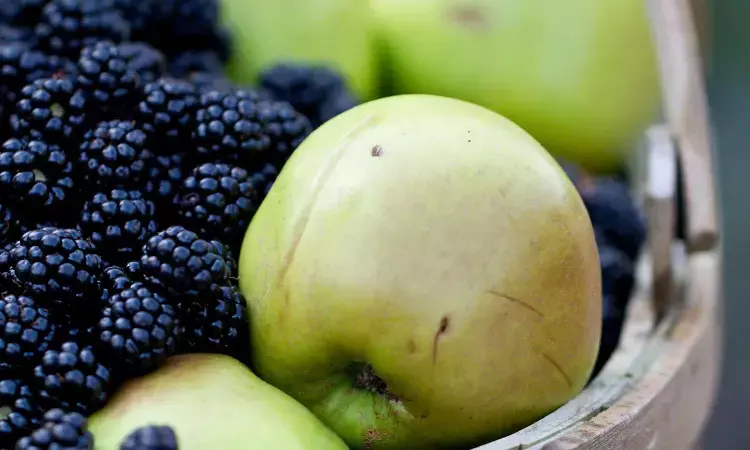- Home
- Medical news & Guidelines
- Anesthesiology
- Cardiology and CTVS
- Critical Care
- Dentistry
- Dermatology
- Diabetes and Endocrinology
- ENT
- Gastroenterology
- Medicine
- Nephrology
- Neurology
- Obstretics-Gynaecology
- Oncology
- Ophthalmology
- Orthopaedics
- Pediatrics-Neonatology
- Psychiatry
- Pulmonology
- Radiology
- Surgery
- Urology
- Laboratory Medicine
- Diet
- Nursing
- Paramedical
- Physiotherapy
- Health news
- Fact Check
- Bone Health Fact Check
- Brain Health Fact Check
- Cancer Related Fact Check
- Child Care Fact Check
- Dental and oral health fact check
- Diabetes and metabolic health fact check
- Diet and Nutrition Fact Check
- Eye and ENT Care Fact Check
- Fitness fact check
- Gut health fact check
- Heart health fact check
- Kidney health fact check
- Medical education fact check
- Men's health fact check
- Respiratory fact check
- Skin and hair care fact check
- Vaccine and Immunization fact check
- Women's health fact check
- AYUSH
- State News
- Andaman and Nicobar Islands
- Andhra Pradesh
- Arunachal Pradesh
- Assam
- Bihar
- Chandigarh
- Chattisgarh
- Dadra and Nagar Haveli
- Daman and Diu
- Delhi
- Goa
- Gujarat
- Haryana
- Himachal Pradesh
- Jammu & Kashmir
- Jharkhand
- Karnataka
- Kerala
- Ladakh
- Lakshadweep
- Madhya Pradesh
- Maharashtra
- Manipur
- Meghalaya
- Mizoram
- Nagaland
- Odisha
- Puducherry
- Punjab
- Rajasthan
- Sikkim
- Tamil Nadu
- Telangana
- Tripura
- Uttar Pradesh
- Uttrakhand
- West Bengal
- Medical Education
- Industry
Eating flavonol-rich foods like blackberries and apples can prevent frailty

USA: A higher intake of plant-based foods that contain dietary compounds called flavanols was associated with lower odds of frailty onset, a recent study published in The American Journal of Clinical Nutrition has found.
Foods like blackberries and apples that contain specific flavonoids called quercetin may be the most important for frailty prevention.
Approximately 10% to 15% of older adults experience frailty, a geriatric syndrome that leads to a greater risk of falls, fractures, disability, hospitalization, and mortality. Current dietary recommendations for frailty prevention primarily focus on protein intake. However, many other foods may have health benefits
“There may be some validity to the old saying, an apple a day keeps the doctor (or frailty) away,” said the authors. “Our findings suggest that for every 10 mg higher intake of flavonols per day, the odds of frailty were reduced by 20%. Individuals can easily consume 10 mg of flavonols daily since one medium-sized apple has about 10 mg.”
“Although there was no significant association between total flavonoid intake and frailty, higher flavonols intake (one of the subclasses of flavonoids) was associated with lower odds of developing frailty. Specifically, higher quercetin intake was the flavonoid with the strongest association with frailty prevention. This data suggests that there may be particular subclasses of flavonoids that have the most potential as a dietary strategy for frailty prevention,” said coauthor Shivani Sahni, PhD, of the Department of Medicine, Beth Israel Deaconess Medical Center, Harvard Medical School, and the Hinda and Arthur Marcus Institute for Aging Research, Hebrew SeniorLife; and Courtney L. Millar, PhD, of the Department of Medicine, Beth Israel Deaconess Medical Center, Harvard Medical School, and the Hinda and Arthur Marcus Institute for Aging Research, Hebrew SeniorLife.
The authors suggest that future research should focus on dietary interventions of flavonols or quercetin to treat frailty. Research is also needed on racially and ethnically diverse participants.
The findings were published in the American Journal of Clinical Nutrition article, "Higher Intake Of Dietary Flavonols, Specifically Dietary Quercetin, Is Associated With Lower Odds Of Frailty Onset Over 12-Years Of Follow-Up Among Adults In The Framingham Heart Study.” This is one of the first community-based studies that comprehensively examined the role of dietary flavonoids in frailty prevention.
Reference:
Steven Oei, Courtney L. Millar, Thuy Nga Nguyen Lily, Kenneth J. Mukamal, Douglas P. Kiel, Lewis A. Lipsitz, Marian T. Hannan, Shivani Sahni, Higher intake of dietary flavonols, specifically dietary quercetin, is associated with lower odds of frailty onset over 12 years of follow-up among adults in the Framingham Heart Study, The American Journal of Clinical Nutrition, 2023, https://doi.org/10.1016/j.ajcnut.2023.04.013.
Dr Kamal Kant Kohli-MBBS, DTCD- a chest specialist with more than 30 years of practice and a flair for writing clinical articles, Dr Kamal Kant Kohli joined Medical Dialogues as a Chief Editor of Medical News. Besides writing articles, as an editor, he proofreads and verifies all the medical content published on Medical Dialogues including those coming from journals, studies,medical conferences,guidelines etc. Email: drkohli@medicaldialogues.in. Contact no. 011-43720751


